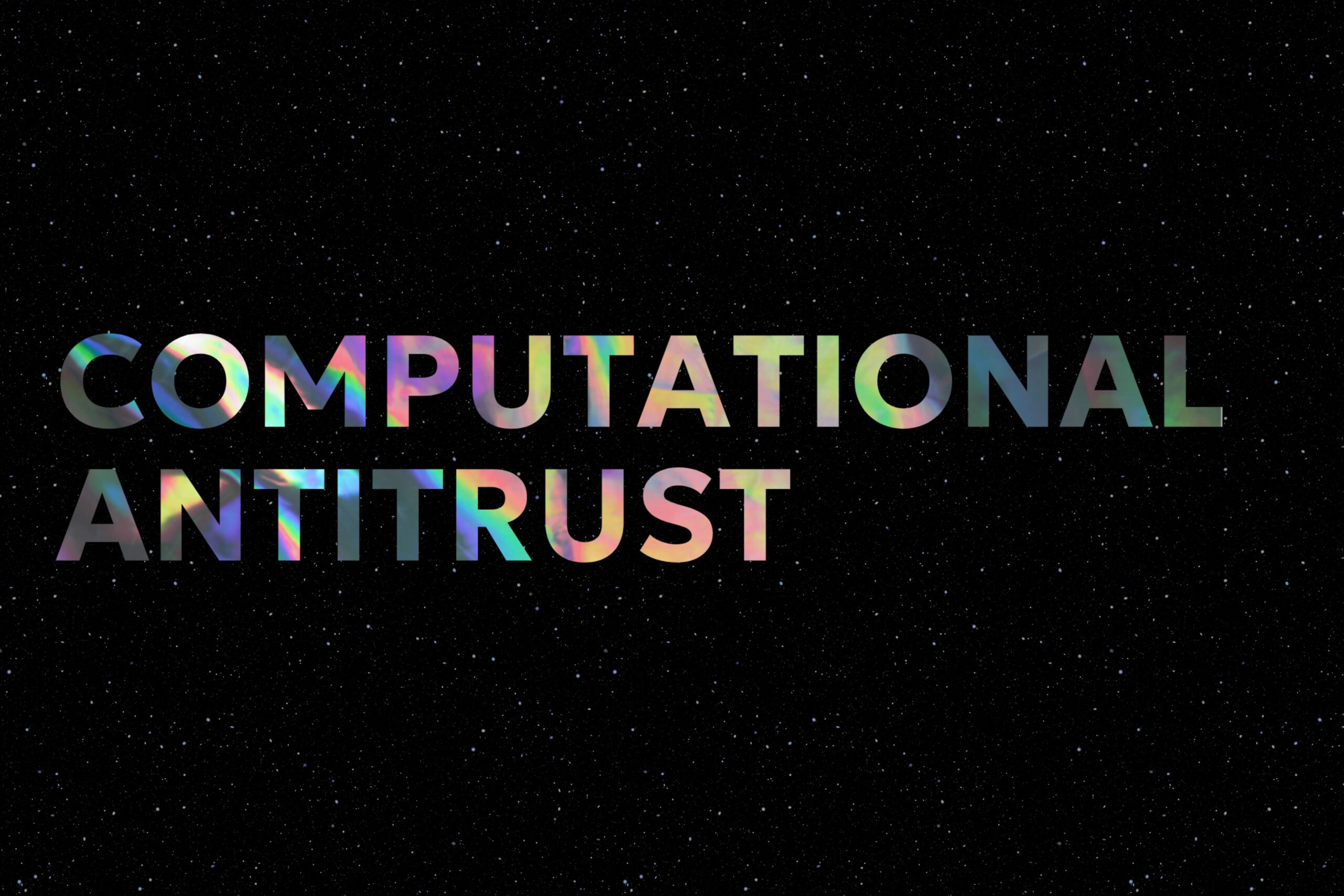Welcome to DigiConsumers, a trimonthly exploration of recent courts and decisions about digital consumers in European law & policy. Authored by Catalina Goanta, an Associate Professor of Law specialized in the field, this series go through the latest and most important developments in the space. Enjoy!
****
European consumer law is making a comeback
Consumer protection has been embedded in European policy since 1975 (Valant 2015, p. 4), and specifically in internal market policy since 1985 (Stuyck 2013, p. 3). During this time, the achievements in this field of substantive EU law have been nothing short of spectacular, with some examples including product safety ✅, unfair contract terms ✅, and collective action ✅. Because of this, consumer law is a notion that attracts a lot of projections relating to food/product labels, non-conformity, price indications, etc. However, when looking at international digital markets, European consumer protection is gaining a lot of new found relevance importance because of the potential it has to redress power imbalances that other continents are still struggling to conceptualize and implement in their regulatory frameworks.
For all its accomplishments, European consumer law has also been thoroughly criticized, with a few instances of such criticism reflecting the failure to lead to a cohesive, harmonized contract law regime in the European Union, as well as its struggles with new consumer harms on digital markets.
Regarding the first, European consumer policy was quite heavily criticized in international academic circles for imposing too high transaction costs on businesses, while patronizing consumers with overreaching protections that would render them less willing to look out for themselves on B2C markets. A plethora of directives led to a meal-piece approach to what ought to have been a sui generis systematization, at European level, of contracts and other private law obligations as enshrined in a romanticized European Civil Code (the Draft Common Frame of Reference). Particularly when consumer policy pivoted towards the now long-forgotten Common European Sales Law, the unfortunate compromise that more or less marked the end of the European private law research wave, criticism was dire (see Eric Posner’s scholarship as an example of such criticism).
Moving to the second point, for a long time, digitalization meant that new mandatory withdrawal rights were created, but that was pretty much it. When Cambridge Analytica happened, which boiled down to a very large online platform (Facebook) allowing industrial-level access to the data of unsuspecting users who had no idea about the fact that shady, opaque developers and companies were syphoning their activities for profiling purposes, it became by default a data protection issue. Symeonidis et al. explain the technical infrastructure of the Facebook Application Programming Interface (API) that facilitated all that, in a fantastic paper from 2015. However, before data protection authorities in the UK, one of the most affected jurisdictions outside of the US, managed to issue an official penalty in October 2018, consumer protection authorities were already doubling down on their earlier fines and investigations. The Italian Competition Authority had issued a fine against Facebook in April 2018, and then went after the platform once more in December 2018. The legal basis of the investigation was the national implementation of the Unfair Commercial Practices Directive, which proved its versatility in terms of tackling power asymmetries on digital markets, as the Italian Competition Authority found data sharing practices without consumer knowledge to be misleading and aggressive. This is a telling example of how consumer protection issues arising on digital markets need not be cannibalized by other sectoral regulation which may seem more appropriate simply because it is largely native to the digital realm.
Consumer protection regulation – particularly through two of its most future-proof instruments, the Unfair Contract Terms Directive and the Unfair Commercial Practices Directive – is crucial in the further development of digital fairness in consumer transactions. In the Digital Services Act (July 2022 version), ‘illegal content’ is defined as ‘any information, which, in itself or in relation to an activity, including the sale of products or the provision of services, is not in compliance with Union law or the law of any Member State which is in compliance with Union law, irrespective of the precise subject matter or nature of that law’, and platforms will have to take measures against it (notice and action). If content on a marketplace or on social media does not comply with consumer protection rules, it can thus be labelled as illegal, and platforms will have a legal responsibility to deal with it. This is all the more important given market trends such as content monetization or social commerce (Riefa 2019). For instance, YouTube just partnered with Shopify to enable YouTube viewers to purchase goods while watching videos on the platform, through their new service called YouTube Shopping. This development is a mere addition to a long list of similar shifts, such as Instagram’s Checkout button or Twitter’s Shops.
Bottom line, on today’s Internet, everyone is a consumer in one way or another, and at least in the European Union we have the necessary protections to fall back on when consumer harms occur. We just need to figure out how to best use them, and what other sectoral regulation can learn from the successes and resilience of European consumer protection legislation. At the same time, what lies ahead for the future of this field are fundamental questions that might need complete rehauls: why should we disclose information if nobody *ever* reads it even online? What’s the purpose of European rules when a considerable amount of consumer purchases are from outside the EU? How do we enforce consumer law on digital markets when there’s no way public authorities can conjure the same resources as the players they’re up against in adversarial situations?
Against this background, I thought of creating a series of posts, graciously hosted by the Network Law Review, to share with whoever is interested, what is happening in European law and policy vis-à-vis consumer protection regulation that is relevant for the governance of digital markets. These developments include academic debates, case law, exciting projects and other relevant resources. I don’t plan to replace the wonderful posts of colleagues from Exeter and Amsterdam hosted at the long-lived blog ‘Recent Developments in European Consumer Law’, but rather aim to use this series for a combination of highlighting interesting resources and providing some additional commentary where necessary. In the first post in the series, I’ve selected a list of 9 such resources.
August 2022
Research
- Book: Ida Koivisto, The Transparency Paradox (OUP, 2022)
In the light of the Digital Services Act’s pursuit of more transparency, it is very useful to consider what transparency can actually achieve. In this manuscript, Koivisto promises to explore the ‘hidden logic of the ideal of transparency, combining law with critical transparency studies’, and ‘considers transparency as a concept and a governance ideal, with analysis of its legal manifestations’. The book was just published in July 2022, so I have not had the chance to secure a copy yet. However, if it is anything like Koivisto’s earlier work, it will certainly make for a thought-provoking read. While the digitalization theme seems to be treated in more theoretical terms, consumer law can be a very interesting sector for a more applied perspective of the transparency concept characterized in the book. This is particularly relevant for the transparency implications of the Digital Services Act relating to consumer rights, where transparency is once more a running theme.
- Book: Madalena Narciso, Reviewing the information paradigm: the role of online reviews in the regulation of information in EU consumer law (doctoral thesis, self-published, 2022)
Speaking of transparency, earlier this year Madalena Narciso has completed her doctoral research on information duties in the European consumer acquis. Information duties (e.g. the trader’s obligations according to the Consumer Rights Directive) are a central pillar of European consumer protection, and have faced no small amount of controversy (as indicated above). Narciso departs from this criticism – namely that consumers often do not care to read the information mandated to be disclosed – and explores alternative information sources such as online reviews, to better understand why and to what extend consumers prefer to read those instead of the disclosures provided by traders. Her work also includes empirical observations based on the manual annotation of 1500 precontractual duties to inform coded according to 8 variables. This dataset is publicly available.
- Article: Bram Duivenvoorde, The Liability of Online Marketplaces under the Unfair Commercial Practices Directive, the E-commerce Directive and the Digital Services Act 11(2) EuCML (2022), p. 43-52
In this publication, Duivenvoorde explores the implications of marketing on online marketplaces for consumer protection from the perspective of platform liability, and makes a comparison between the liability regimes adopted by three different instruments: the E-Commerce Directive, the Unfair Commercial Practices Directive and the Digital Services Act. This paper is particularly important for highlighting the need to consider consumer protection as having no less of a role in addressing the impact of platform power on individual users, than say copyright, or (other) fundamental rights. This paper was also presented by Duivenvoorde during the Journal of European Consumer and Market Law Webinar #2 (The Present and Future of Online Marketplace Liability), with comments from Christoph Busch and Teresa Rodríguez de las Heras Ballell, and can be viewed on the EuCML YouTube channel, together with two previous webinars on online content and dark patterns.
In addition to these highlighted publications, if you are interested in reading more about European consumer law and policy research, don’t forget to check the Journal of European Consumer and Market Law, as well as the Journal of Consumer Policy, as the main relevant sources of information on this theme.
Policy
- One thing to keep an eye on is the European Commission’s ongoing Fairness Fitness Check, which will focus on the Unfair Commercial Practices Directive, the Consumer Rights Directive and the Unfair Contract Terms Directive. A public consultation is planned for the fourth quarter of 2022, and in the feedback period (17 May 2022-14 June 2022), a total of 68 stakeholders provided reactions to the Fitness Check, including several disgruntled citizens who comment-bombed the feedback section to express concerns on other European policy issues such as digital currencies.
Upcoming events
- The fifth annual US Consumer Law Scholars Conference (CLSC) to be held on 2-3 March 2023 at Berkeley Law School: the call for abstracts is due on 16 September, and full papers on 31 January 2023.
- If you have any ideas for a position paper on computational consumer law (e.g. using Natural Language Processing for contract terms or information duties), have a look at the ongoing call for papers for the fourth edition of the Natural Legal Language Processing Workshop to be collocated with the computer science conference Empirical Methods in Natural Language Processing 2022. You can choose between short and long papers (4 and respectively 8 pages).
- Coming up in August (30-31 August) is the conference on ‘Reconstituting the Consumer in EU Law and Policy: Towards a More Multi-dimensional Approach’, hosted by the Amsterdam Center of European Studies, and organized by Kati Cseres, Giacomo Tagiuri and Yannick van den Berg, exploring the problematic dichotomies in consumer roles (e.g. active/passive; informed/uninformed), particularly in the face of the two most important drivers of consumer behaviour impact: digitalization and sustainability.
- Also at the University of Amsterdam, but this time the Center for Transformative Private Law, Antonio Davola is hosting a conference connected to his Marie Curie project, on ‘Regulating Personalization in the European Union: Insights at the Crossroads of Private Law, Consumer Protection, and Contracts’. The conference is planned for 22-23 September 2022.
- Pencil in the Internet Governance Forum, which will be hosted in Addis Ababa and hybrid between 28 November and 2 December 2022, because it will feature an exciting workshop on dark patterns – IGF 2022 WS #229 Dark patterns: an online challenge in consumer protection, focused on how to better combat manipulative industry practices that are aimed at capturing the will architecture of (particularly vulnerable) consumers. The Workshop is hosted by the competition and consumer protection authorities from Poland and the Netherlands.
Catalina Goanta
***
Citation: Catalina Goanta, Digital Consumers in European Law & Policy – Highlights #1, Network Law Rev. (August 18, 2022)








